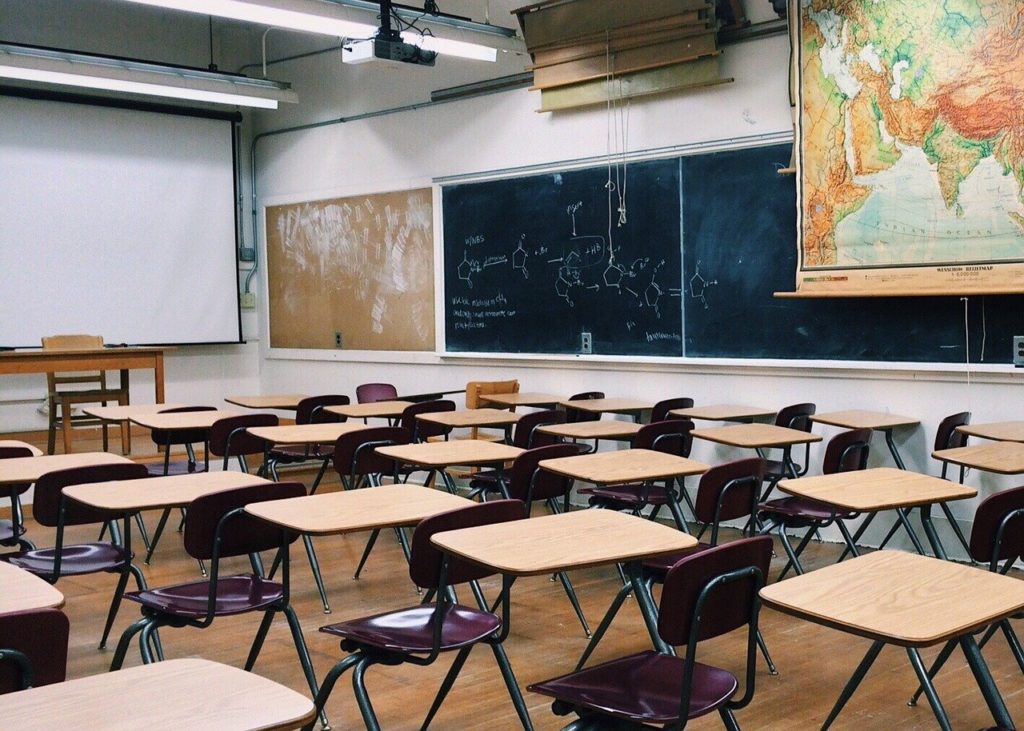Klaisner Says Education System Issues Could Last for Another Two Years

![]()
Klaisner Says Education System Issues Could Last for Another Two Years (Southland Chicago, IL) – Mark A. Klaisner and other experts saw this coming before the COVID-19 pandemic arrived on the educational skyline. However, a potential problem worsened significantly because of the pandemic and had effects that could resonate past 2024.
“We started our conversations about this topic as far back in 2015, and already at that point, we saw on the horizon the teacher shortage crisis upon us. The trend was in a negative direction where we saw less teachers coming out of colleges and more teachers leaving the profession.” Then in 2020-2021, our trend became a cliff,” said Klaisner, Illinois Association of Regional Superintendents of Schools president and executive director of the West40 ISC west of Chicago.
Illinois Association of Regional Superintendents of Schools
The Illinois Association of Regional Superintendents of Schools (IARSS), the leaders of Regional Offices of Education and Intermediate Service Centers in all 102 Illinois counties, partnered with Goshen Education Consulting and Illinois for a fall 2021 survey of more than 660 school districts statewide on the key questions around the depth and consequences of Illinois’ teacher shortage crisis. The overview highlights include a significant teacher shortage along with COVID-19 effects on students and staff causing classroom disruptions and cancellation. With no quick fixes available for such a large issue, superintendents predicted this title wave could last for the next two full school years. Almost 80 percent of the school district superintendents responded to the survey.
[Elite_video_player id=”1″ youtubevideos=’IkNM8rSpEac’]
Snapshot of Illinois
“That is important to us because we are able to say this is not a few people. This really is a snapshot of the entire state of Illinois,” said Klaisner. “Key aspects to point out is that 88 percent of those superintendents say we have a serious teacher shortage problem and 77 percent said it is getting worse every year.”
A disturbing trend is that the issue permeates through every aspect and professional level of the educational system.
“What we are seeing this year that is tremendously different is that we have more than just teacher shortages. We are seeing bus driver shortages, lunchroom shortages, crossing guard shortages and paraprofessional shortages. We are seeing administrators leaving the field and we are seeing superintendents leaving. We even see it at the school board level where elected school board members are saying this is more than I signed up for,” said Klaisner.
Teacher Shortage
The teacher shortage has come to the doorstep of the families throughout Illinois who must scramble to find day care or transportation for their children. In the long term, it may cause lost opportunities for learning and academic achievement when students statewide test in March. In the short term, remote learning, and school day closures are becoming the consequences.
“Every single day regional offices across the state are hearing districts say I don’t have enough staff to start school. We heard those kinds of dilemmas in the negotiations between Chicago and the CPS union, but we are also hearing it in Marion, Rockford and Quincy. They are saying I don’t have enough bus drivers to get kids to school and I don’t have enough teachers and staff to open school safely,” said Klaisner.
Shortages
While shortage problems are evident in all parts of Illinois, rural school districts report the most significant problems and the worst outlook ahead. The most severe shortage problems are found in west central and east central Illinois – each region has more than 90 percent of schools reporting shortages. Shortages are also most extreme in unit districts.
With COVID and remote learning, students have missed two to three years of basketball and football games, prom, the yearbook, extracurricular clubs and other missing voids in their social experience.
Common Theme
“A common theme I am hearing is that students have missed the adventure of being in school,” said Klaisner. “Examples like parents saying my second grader left when they were kindergartens so they have not had two years of what it means to be in school. My eighth grader left when they were in sixth grade and they forgot how to lock the lock on their lockers. Students haven’t had the opportunities to mature, to collaborate and work with others. On top of the school content ,there is the whole experience of school.”
The question now begins: how do you move forward and try to have some semblance of normal? He believes the work needs to start in the next two months.
“I think August starts in April. We need to start planning so we can provide workshops in the summer to empower and equip teachers. We know kids are going to come back slightly different. We are seeing more and more discussions about trauma, students have been through difficult situations and we know that mental health is a huge issue. The statistics are just staggering about attempted suicides, suicides and domestic violence and all those factors are going to come back into the doors in August,” said Klaisner.
Survey Highlights
Illinois school districts report the teacher shortage problem has worsened from last year in virtually all major areas:
- 88 percent of schools say they have a teacher shortage problem, and 77 percent report the shortage is getting worse
- 93 percent of districts expect the shortage will worsen over the 2023 and 2024 academic years
- More than 2,000 positions are either not filled or filled by someone not qualified to teach there – more than double the amount reported from the last school year
- 96 percent of schools report a substitute teacher shortage problem
- More than 400 classes were canceled, and nearly that many sent online because schools simply had no one to teach them in person
- While administrator shortages are much less severe, schools report they’re having a harder time finding qualified candidates amid retirements and are more and more concerned those struggles will grow over time
Klaisner Says Education System Issues Could Last for Another Two Years








Responses